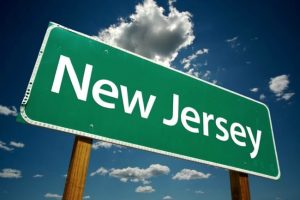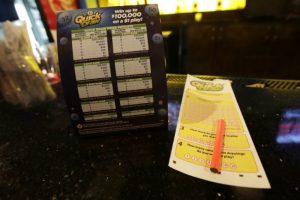 This Thursday, the Democrat-led Assembly gaming committee heard testimony on legislation that would change the way in which Quick Draw keno game is played. New Jersey policymakers rolled out a plan to amend the keno-style lottery gaming bill.
This Thursday, the Democrat-led Assembly gaming committee heard testimony on legislation that would change the way in which Quick Draw keno game is played. New Jersey policymakers rolled out a plan to amend the keno-style lottery gaming bill.
The sponsor of the bill explained that the multiple drawings in every five minutes are threatening the profitability of Atlantic City’s casinos, which means less state revenues from gambling. The proposal includes the reduction of keno drawings from every five minutes to just twice daily.
The recent proposal comes only six months after the lottery introduced the bingo-like betting game. As it can be recalled, the New Jersey Lottery Commission launched keno-style games at bars and gathering spots in an attempt to net about $20 million in the fiscal year ending June 30. It is important to note that over the last several years, the lottery failed to meet the revenue projections. According to reliable sources, the lottery lost more than $100 million in ticket sales for the last year.
Despite the steep decline in its revenues, lottery remains one of the main subsidizers to education and social service programs. That explains why the lottery was allowed to spice up its line of products by adding Quick Draw keno. Such a big change could not go without opposition.
Opinions Remain Remain Mixed on Keno Success
 Assemblyman Vince Mazzeo, D-Atlantic opposed the introduction of the keno-style Quick Draw game, explaining that the New Jersey Lottery Commission expands the casino-style gaming outside Atlantic City. Anti-gambling groups explained that the gambling expansion may trigger a gambling addiction increase.
Assemblyman Vince Mazzeo, D-Atlantic opposed the introduction of the keno-style Quick Draw game, explaining that the New Jersey Lottery Commission expands the casino-style gaming outside Atlantic City. Anti-gambling groups explained that the gambling expansion may trigger a gambling addiction increase.
Committee Chairman and a co-sponsor of the recent legislation Ralph Caputo, D-Essex, explained that Gov. Chris Christie’s administration did not provide a detailed information about the possible effects that keno games could have on Atlantic City casinos. Lottery and Treasury representatives did not testify at the hearing. In fact, there were only two people, who testified on the legislation.
Bob Marshall, the legislative affairs director of the Greater Atlantic City Chamber, thumbed up the bill, explaining that keno games expand casino-style gambling. Diane Weiss, executive director of the New Jersey Licensed Beverage Association, opposed the bill, arguing that the bill was for the benefit of the vendors she represents. She added that the customers are ordering more food and beverages at the places where keno game is allowed.
However, it seems that the gains from the Quick Draw keno game are not as high as expected. After the game was launched in bars and restaurants in August last year, it brought less than $5 million by the end of December. The lawmakers need to decide if keeping the Quick Draw keno game and risking the revenues from the casino houses in Atlantic City is worth the try.



















